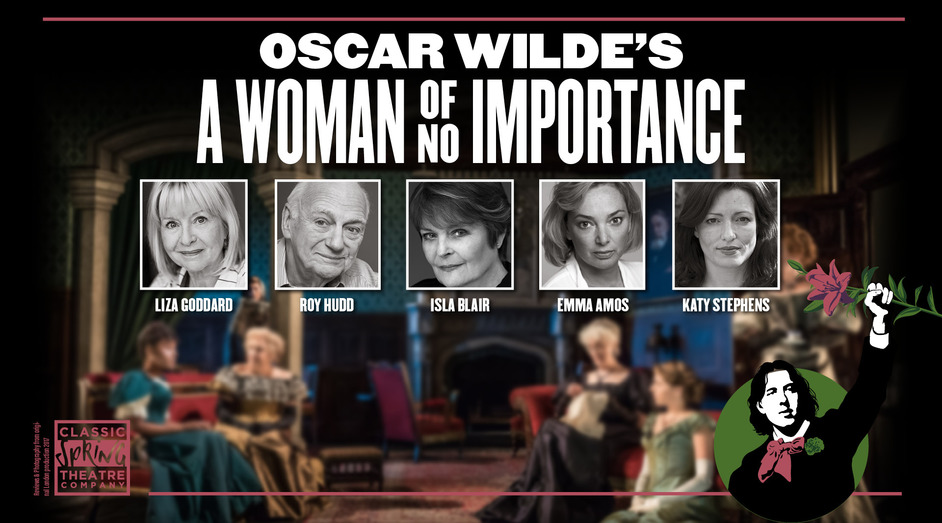
In Wilde’s A Woman of No Importance, a young man’s career ambitions are jeopardised when his mother meets his prestigious and titled new employer at an affluent dinner party, and the concealed implications of their past are brought to the fore. The audience is served the playwright’s infamous humour with a side helping of social critique.
The big problem with the play is that it is Wilde’s most sincere and moralising play. The Importance of Being Earnest buries a labyrinth of social criticism beneath an immaculate veneer of whimsy. A Woman of No Importance, though certainly possessed of Wildean wit, has lengthy sections of blunt, hand-wringing moralising and melodrama where the wry quips are banished from sight. Each half suffers from at least one protracted scene where the depredations of British society are castigated at length and unpunctuated.
This problem is exacerbated because the whimsy and contrarian humour that Wilde is so well known for is largely relegated to the peripheral characters and not the core of the drama. Of the four main characters, Lord Illingworth is the only one exhibiting Wilde’s trademark characteristics and even then he does not tend to do so in the presence of the other protagonists. That is not to say that when the humour is entrenched within the dialogue, it is not funny or that there are no stakes to the drama. But the play does feel bifurcated. You have a fallen woman and legitimacy storyline that is simply cohabiting the stage with a barbed upper class dinner party.
My issues with the material as a lesser Wilde play aside, it is still an interesting curiosity. It’s the play where one of the most sharp of Wilde’s dandies is explicitly a villain; and for all I find the moralising of the puritan characters tiresome, the fact that Wilde presents such a scathing criticism of the sexual double-standard remains an astounding feat of moral clarity given how embedded he was in the upper crust (at that point, at least).
In terms of this production, I was impressed with how callous and exploitative Illingworth was framed: his altercation with Hester Worsley in the garden having an air of a Weinstein scandal about it. Mark Meadows is sharp, capricious and quite loathsome in the role. The material does not always let the other protagonists shine but the supporting cast is replete with precisely delivered stingers – most notably Isla Blair and Liza Giddard as Ladies Pontefract and Hunstanton, respectively.
I was disappointed with quite how flat the staging presented all the drama: aside from a little use of the depth of the stage, the set and blocking felt very simplistic. For all the decor to depict the interior or exterior of a country house, there was little that could not have been achieved by a flat background in how the cast occupied the space.
A Woman of No Importance offers a good time but the material presents difficulties for any staging and this production could have tried a little harder to try to overcome them. ★★★☆☆ Fenton Coulthurst 7th September 2019

